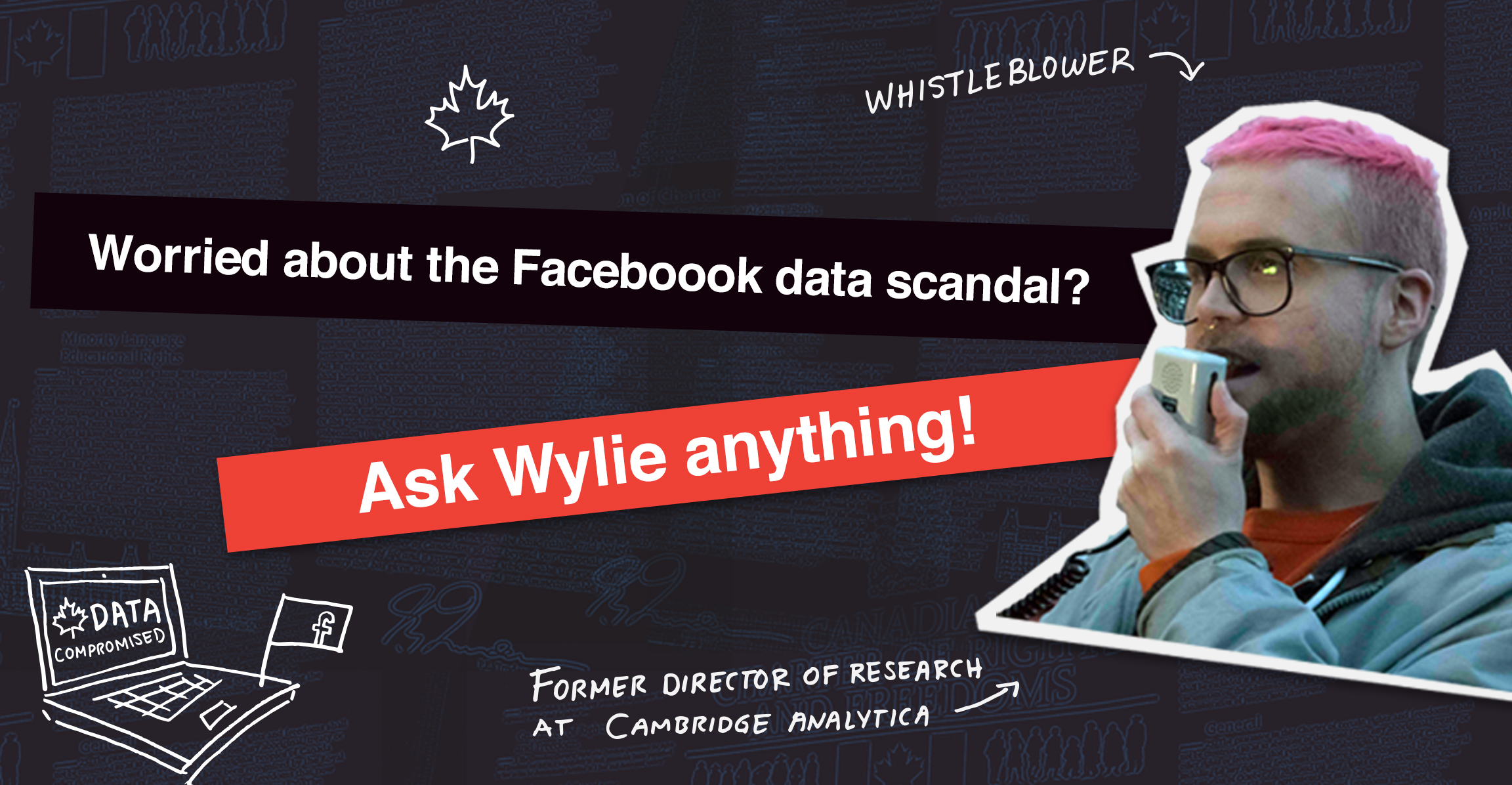“Cambridge Analytica is the canary in the coal mine.” That’s what Cambridge Analytica whistleblower Christopher Wylie said in front of a Canadian parliamentary committee, in response to a question from our community about the Facebook and Cambridge Analytica scandal.
Christopher Wylie is a Canadian data scientist who came forward with proof that Cambridge Analytica had funded the harvesting of Facebook profiles. The information from those profiles was used to power software that targeted voters with personalised messaging.
This information he revealed also showed how political campaigns like Vote Leave in the UK spent huge sums of money with the Canadian data firm AggregateIQ to influence vote outcomes.
On May 29, 2018 he appeared in front of the Standing Committee on Access to Information, Privacy and Ethics to answer questions about the privacy violations he revealed, how Canadians were affected, and Facebook’s role in the scandal.
Together, the OpenMedia community crowdsourced, discussed, and voted on hundreds of questions to submit to the committee, who had agreed to include our questions on their list.
The committee addressed a number of the concerns that we raised, as well as highlighted a specific question from our community about whether other companies are likely to be involved in the manipulation of elections.
And Wylie’s response to this question — where he called Cambridge Analytica the “canary in the coal mine” and said that the Facebook data scandal had “exposed is how easy it is to misappropriate information, take funds from mysterious sources, and then go and interfere in elections, particularly in cyberspace” — made headlines in Canada.
You can see the video of the full response here.
Thank you again to everyone who took part in this. As Christopher Wylie says in the above video, “Cambridge Analytica is the beginning, it’s not the end”. We have a huge task ahead of us to fix our privacy and electoral laws, but together we can change these things for the better.
Image: OpenMedia
Like this article? rabble is reader-supported journalism.




